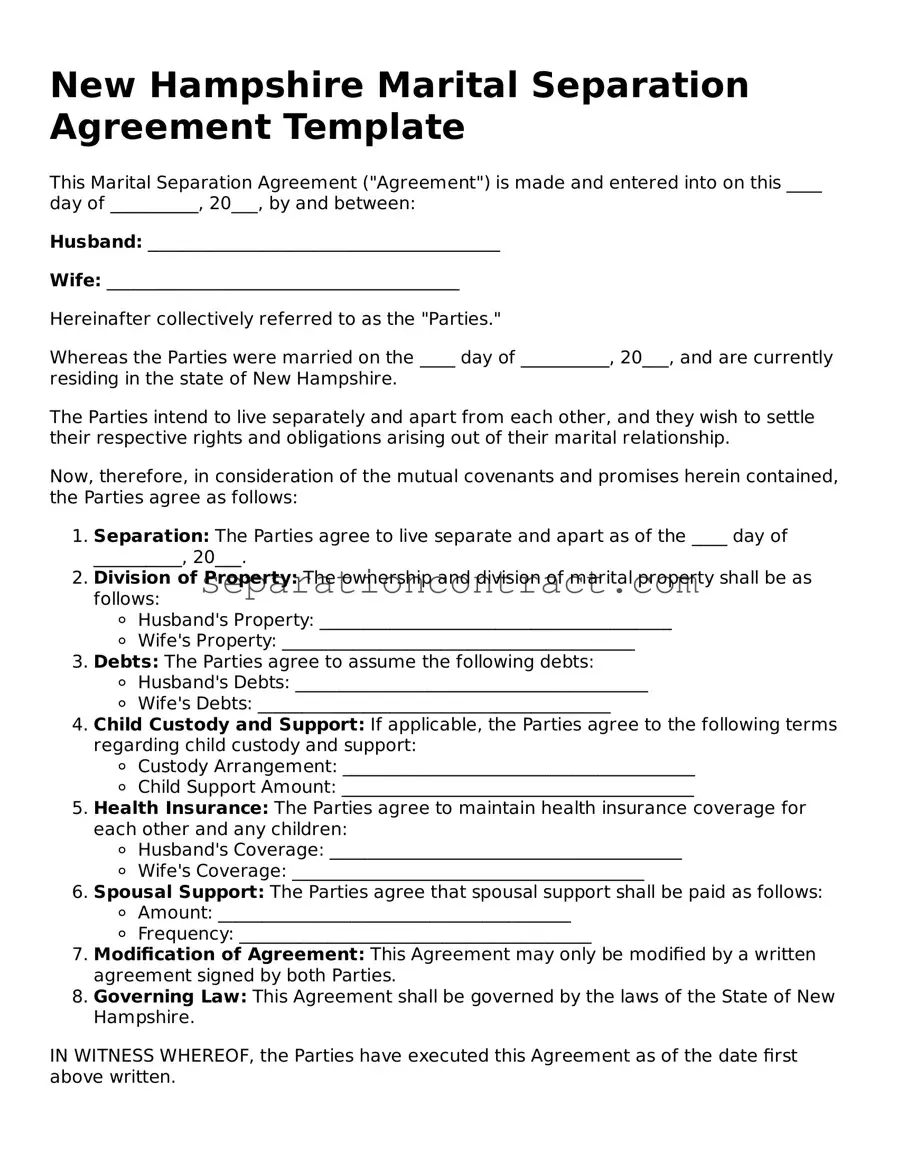Valid Marital Separation Agreement Form for the State of New Hampshire
The New Hampshire Marital Separation Agreement form is a legal document that outlines the terms of separation between spouses. This form addresses various aspects of the separation, including asset division, child custody, and support obligations. To ensure a smooth process, it is essential to complete this form accurately.
Take the next step in your separation process by filling out the form. Click the button below to get started.
Fill Out Your Form Online

Valid Marital Separation Agreement Form for the State of New Hampshire
Fill Out Your Form Online
Before exiting, complete the form
Finish your Marital Separation Agreement online — quick edits, easy save, instant download.
Fill Out Your Form Online
or
↓ PDF File
